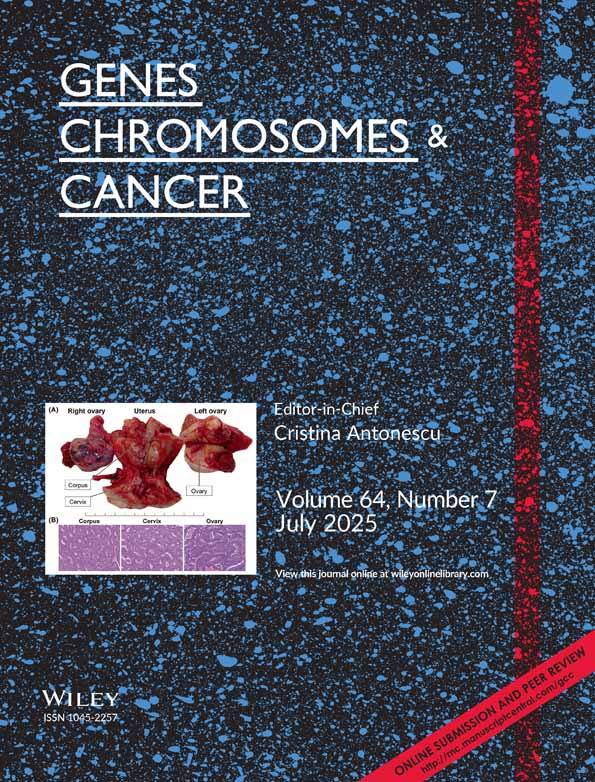No germline TP53 mutations detected in familial and bilateral testicular cancer
Abstract
Mutations in the TP53 gene are considered to be among the most common genetic alterations in human cancers. Both somatic and germline mutations have been found. Using potymerase chain reaction (PCR), constant denaturant gel electrophoresis (CDGE), and denaturing gradient gel electrophoresis (DGGE), we have examined 32 patients with bilateral and familial germ cell tumors (GCT) and two patients with sporadic GCT for germline mutations within the conserved regions of the gene. In addition, 15 tumors were screened for somatic mutations and analyzed for loss of heterozygocity (LOH) at the TP53 locus. Twelve tumors were analyzed for expression of TP53 via immunohistochemistry. Neither germline nor somatic TP53 mutations were deteeted. LOH was observed in one of five informative cases. No tumors showed increased expression of TP53 protein. These results indicate that alterations in the TP53 gene are not important for the predisposition to and development of GCT. © 1993 Wiley-Liss, Inc.




